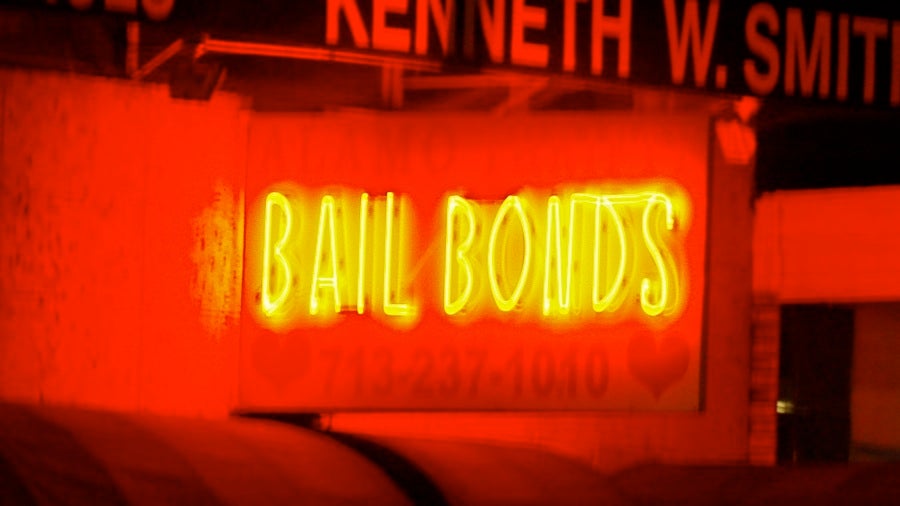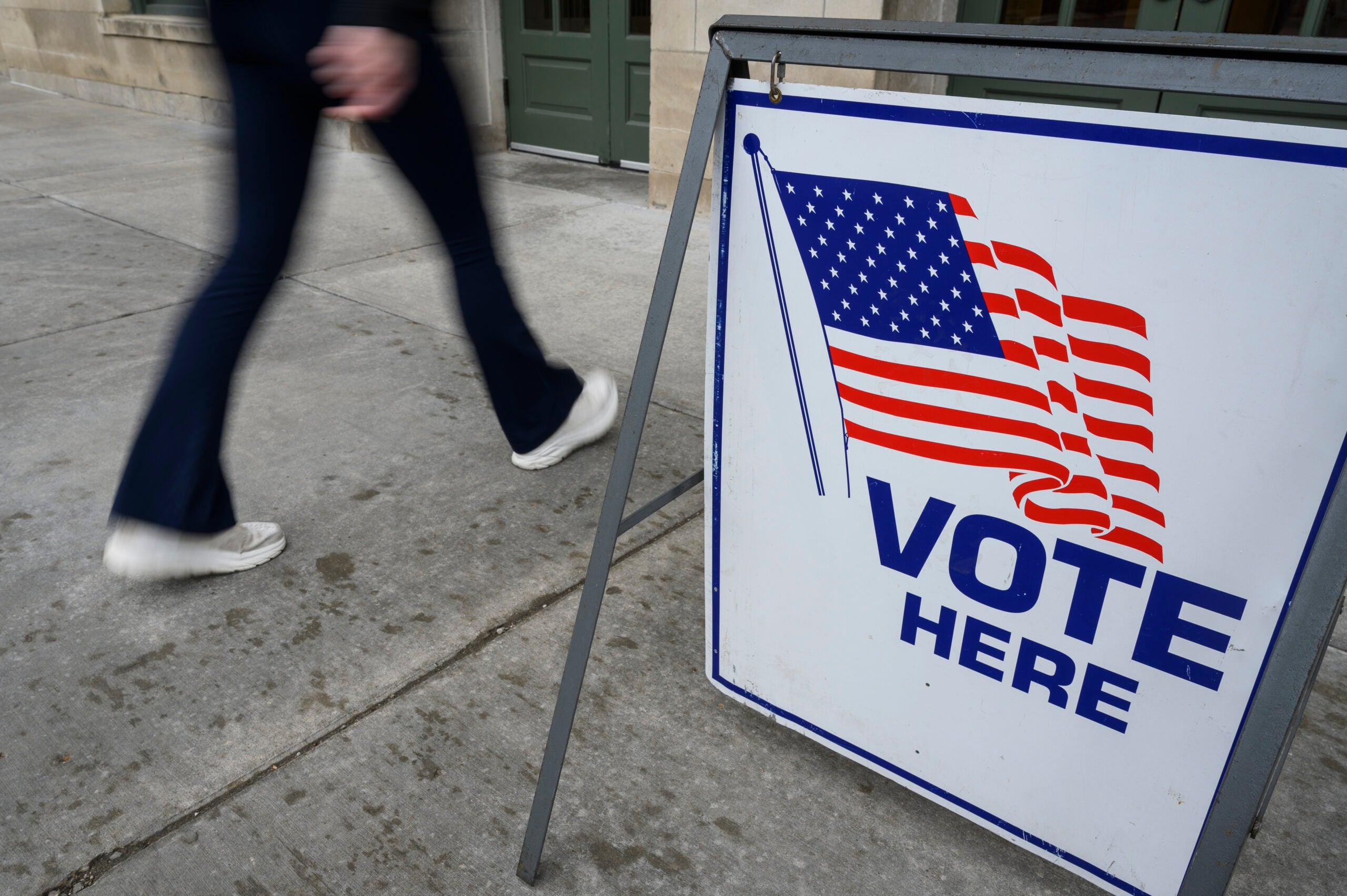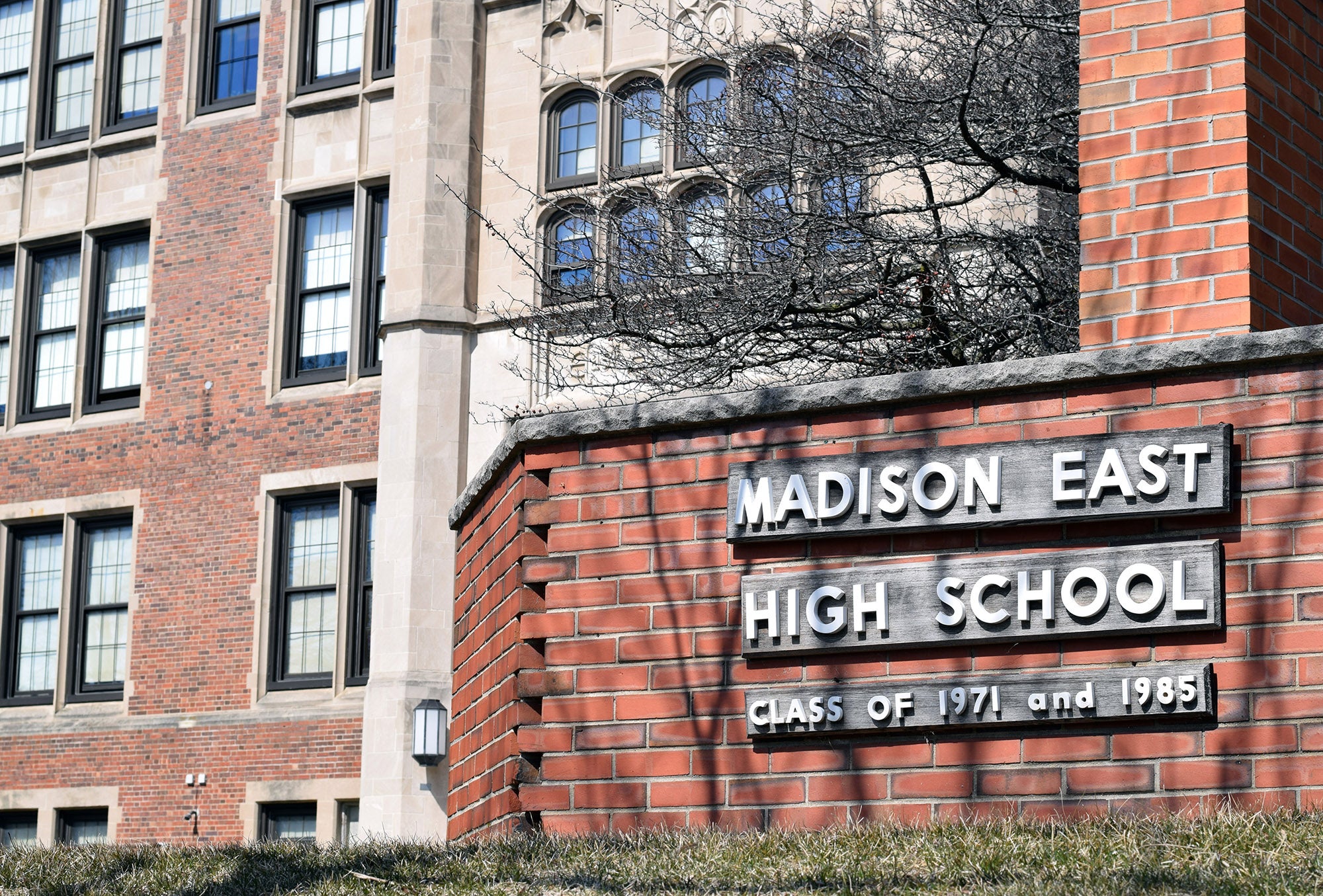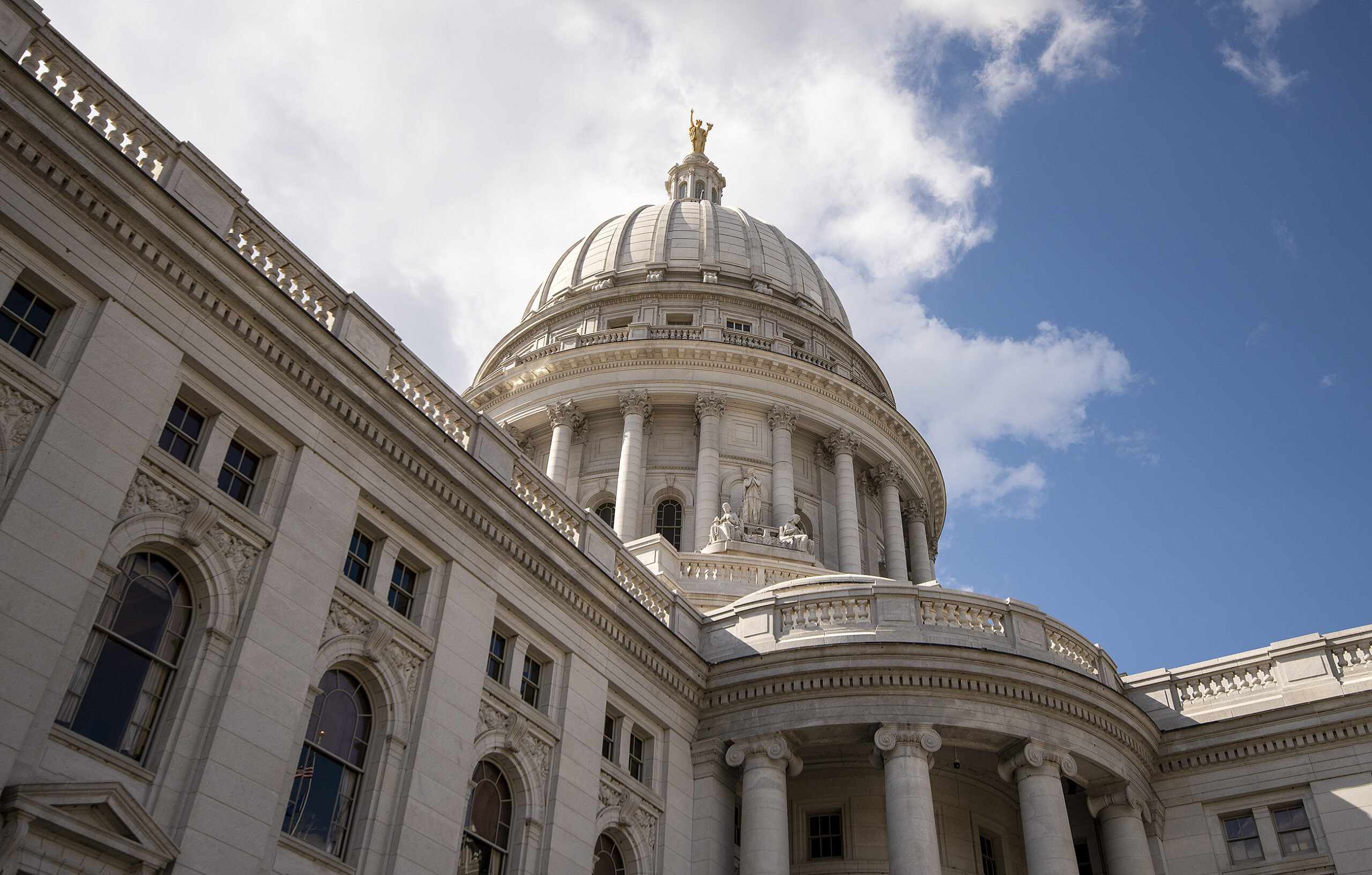The budget that lawmakers will vote on this week includes 94 non-fiscal policy items, a number that’s high even by the legislature’s standards.
Non-fiscal policy typically includes stuff that has no effect on the state’s bottom line – the kind of plans that would normally be introduced as standalone bills. Governors and legislatures add it to the budget for different reasons, but often it’s because it has a better chance of passing there than it would on its own.
When the governor introduced his budget earlier this year he included 58 policy items, according to the non-partisan Legislative Fiscal Bureau (LFB). The legislature’s Joint Finance Committee got rid of 23 but added 59, ending up with 94 pieces of policy in the budget.
Stay informed on the latest news
Sign up for WPR’s email newsletter.
That list includes a measure that would evict the Center for Investigative Journalism from the University of Wisconsin. It also includes a plan to allow for bail bondsmen in Wisconsin.
Ninety-four is on the high side. Numbers from LFB director Bob Lang show it’s more than last session when Republicans had added 78 non-fiscal policy items to the budget at this point. It’s also more than when Democrats were in charge: They added 83 pieces of policy to the budget at this stage in 2009.
It’s also far more than in 2007 when just 30 pieces of policy were included in the budget that cleared the Joint Finance Committee. That year the legislature was under split control and had a hard time agreeing on much of anything.
Wisconsin Public Radio, © Copyright 2024, Board of Regents of the University of Wisconsin System and Wisconsin Educational Communications Board.






